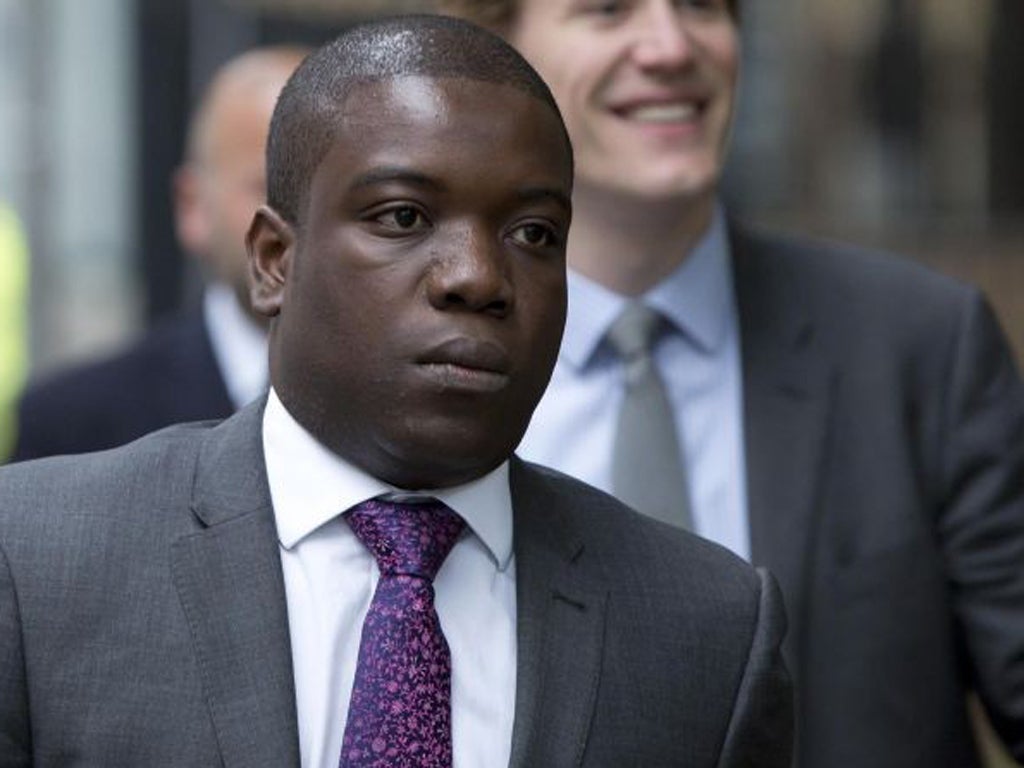
A “rogue trader” accused of Britain's biggest banking fraud was “a gamble or two away from destroying Switzerland's largest bank for his own gain”, a court heard today.
Kweku Adoboli, 32, is accused of gambling away £1.4 billion while working as a trader for UBS.
At one point he was at risk of causing the bank losses of 12 billion US dollars (£7.4 billion), jurors at Southwark Crown Court were told.
Adoboli, who is facing two counts of fraud and two counts of false accounting between October 2008 and last September, allegedly gambled away the money on high risk trades aimed at boosting his annual bonuses and job prospects.
Prosecutor Sasha Wass QC said: "He is on trial because he lost his bank 2.3 billion US dollars (£1.4 billion). He fraudulently gambled it away. He also, in doing so, wiped around 10% or about 4.5 billion US dollars (£2.8 billion) off the bank's share price.
"He did all of this by exceeding his trading limits, by inventing fictitious deals to conceal this and then he lied to his bosses.
"Mr Adoboli's motive for this behaviour was to increase his bonus, his status within the bank, his job prospects and of course his ego.
"Like most gamblers, he believed he had the magic touch. Like most gamblers, when he lost, he caused chaos and disaster to himself and all of those around him."
Adoboli worked for UBS's global synthetic equities division, buying and selling exchange traded funds (ETFs), which track different types of stocks, bonds or commodities such as metals.
The bank set a daily trading limit for the ETF desk of 100 billion US dollars (£61.5 billion), and also used hedging to reduce risk - for example buying one type of investment and simultaneously selling a similar one to mitigate any loss.
Prosecutors claim Adoboli failed to hedge several of his investments in order to make a bigger profit for the bank and larger bonus for himself.
Ms Wass said: "At one stage Mr Adoboli was in danger of losing the bank nearly 12 billion US dollars (£7.4 billion) of unhedged investments."
Adoboli, from Clark Street, Whitechapel, east London, "fraudulently side-stepped" the bank's rules that banned high risk and unauthorised trades, the court heard.
Ms Wass said: "To put the huge trading loss in some sort of perspective, 2.3 billion US dollars is enough to pay a year's salary for nearly 70,000 new nurses or two Wembley stadiums or perhaps even six new hospitals.
"This colossal loss arose purely as a result of Mr Adoboli's fraudulent deal making, which amounted as you will see, to nothing more than gambling."
She added: "Mr Adoboli had ceased to act as a professional investment banker and had begun to approach his work as a naked gambler. He had become what is sometimes referred to as a rogue trader."
Adoboli made false account entries over a two-and-a-half year period to make it look as if the money he was gambling had been balanced by money coming in, it is claimed.
The public school-educated former head boy got a job at UBS in 2003 as a graduate trainee and worked his way up.
He became a trader in December 2005, was promoted to associate director in March 2008 and then director in March 2010.
Moving into trading meant he had the chance to earn substantial bonuses, Ms Wass said, which rose to £250,000 in 2010.
Adoboli fell into a "gambling mindset" and very quickly the losses he was causing grew into billions, the court heard.
He eventually sent an email to colleagues in September last year, outlining the hole in UBS's accounts.
Adoboli walked out of the bank saying he was going to the doctor's, and an hour later sent a "bombshell" message from his personal email account.
In the message to colleagues, including William Steward, a co-worker who was checking his deals, he admitted that trades he had entered in the ledger were not real and some were "off-book", which Ms Wass said meant they were "illegally conducted and hidden trades".
Adoboli said he had hoped to make his losses back, but had "clearly failed".
The message read: "I am deeply sorry to have left this mess for everyone and to have put my bank and my colleagues at risk."
Adoboli will claim he was not acting dishonestly and that colleagues on his desk knew what he had been doing, jurors heard.
Ms Wass said it would be easy to dismiss the 2.3 billion dollar loss as "a very large bank losing a very large sum of money".
But she went on: "It's important to acknowledge that the bank is owned by its shareholders. Shareholders are not some anonymous group of rich people, but they're more likely to be ordinary people like you and me. Pension funds, trust funds, investments large and small would have had shares in UBS."
The trial was adjourned until Monday.
PA
Subscribe to Independent Premium to bookmark this article
Want to bookmark your favourite articles and stories to read or reference later? Start your Independent Premium subscription today.
